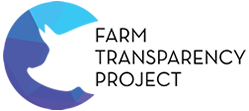News & Media: High court to hear bid to overturn New South Wales ‘ag-gag’ laws
High court to hear bid to overturn New South Wales ‘ag-gag’ laws
Animal rights activists have launched a landmark high court bid to overturn laws suppressing secretly recorded vision of cruelty and abuse in slaughterhouses, arguing that they breach Australia’s implied right to freedom of political communication.
The case will champion openness and transparency in the agriculture sector and push back against so-called “ag-gag laws” stopping activists using hidden cameras to highlight mistreatment.
In New South Wales, the Surveillance Devices Act criminalises the use of footage or audio that was obtained using a listening device or hidden camera. Unlike other state and federal laws, NSW law gives no public-interest exemption to allow for such footage to be used.
The laws have been used to pursue animal rights activists on criminal charges and, more recently, have prevented outlets such as the Guardian from publishing secretly recorded footage of ex-racehorses being sent for slaughter at NSW pet food factories, against industry rules.
The Farm Transparency Project recently filed a case before the high court arguing that the NSW laws burdened “the implied freedom of political communication” and were “not compatible with the system of representative and responsible government established by the constitution”.
If successful, the case would mean the NSW law would be ruled unconstitutional and invalid.
Executive director Chris Delforce said the case had broader implications outside NSW. He said it would make passing similar laws elsewhere in Australia “just about impossible”.
“Challenging the constitutional validity of one such law is the only way to stop them once and for all,” he said.
Ag-gag laws have raised difficult and complex problems for more mainstream animal rights groups.
The RSPCA, for example, is opposed to using unlawful means, such as trespass and covert recording, to champion animal welfare. At the same time, it has argued that ag-gag laws simply “generate distrust within the community and may in fact be counterproductive in providing greater social legitimacy to the actions of activists”.
In 2019, the federal government passed tough new penalties for anyone who incited trespass, property damage or theft on agricultural land. Then attorney general Christian Porter said the laws were prompted by the harassment of farmers and trespass on their land, following “the sharing of personal information online, including personal details of farmers’ names, addresses and workplaces”.
But the government specifically introduced exemptions for journalists and whistleblowers, recognising the importance of reporting on animal cruelty.
“For journalists, the offences would not apply to material relating to a news or current affairs report, where made by a journalist in the public interest in their professional capacity,” Porter said. “For example, the bill would provide an exemption for a journalist acting in their professional capacity who publishes a story that listed the locations of farms with ‘questionable’ farming practices, simply because activists use that information for future trespasses.”
The Farm Transparency Project is now crowdfunding to finance the case.
Delforce, who has been prosecuted under the NSW law, said the high court action was crucial in bringing transparency to the sector.
“We’ve had enough – these industries need more transparency, not less,” he said. “The animals suffering in our nation’s farms, slaughterhouses and knackeries deserve to have their stories told, and the Australian public deserves the opportunity to hear them.”


